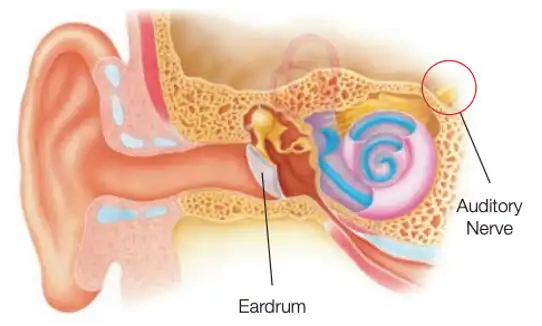Much like learning a second language, or keeping your tennis stroke consistent, there are some things in life that need a bit more regular-use than others to stay in shape. We’ve all heard the phrase, “Use it or lose it!”, and when it comes to your hearing, that’s exactly what can happen when hearing loss is left unchecked.
This blog will detail a condition called Auditory Deprivation that can result from prolonged neglection of a hearing loss, and although we can’t help keep your forehand in play, we can certainly spare you from the negative impact this condition can have on your quality of life.
Understanding Auditory Deprivation
Auditory Deprivation occurs when hearing loss goes untreated. It’s a term that describes the process by which the auditory centers of your brain become starved of acoustic information, ultimately affecting your brain’s ability to understand speech. In short, it’s a “use it or lose it” scenario for your auditory system. The longer you leave hearing loss untreated, the more likely it becomes that your brain will forget how to hear.
The good news is that there’s a silver lining shimmering in view. The sooner you address hearing loss, the less likely Auditory Deprivation is to occur. Moreover, thanks to technological advancements in hearing instruments like Beltone Achieve™, you can actively engage your auditory centers, minimizing the detrimental effects of Auditory Deprivation.
Recognizing the Warning Signs
Ignoring the warning signs of hearing loss can have far-reaching consequences. It’s important to be proactive and attentive to your hearing health. Here are ten red flags you should never ignore:
- People seem to mumble more frequently: If you find yourself constantly asking others to repeat themselves, it could be a sign of hearing loss.
- You experience ringing in your ears: Persistent tinnitus, or ringing in the ears, can be an early indicator of hearing issues.
- You often ask people to repeat themselves: Frequent requests for repetition may signal that you’re struggling to hear clearly.
- Your family complains about the volume of your media: If loved ones are constantly asking you to turn down the radio or TV, it’s time to consider your hearing health.
- You no longer hear normal household sounds: Missing out on everyday sounds like a dripping faucet or a ringing doorbell is a clear sign that something may be amiss with your hearing.
- Difficulty understanding conversation in groups: If you struggle to follow conversations in crowded or noisy environments, it’s a strong indication of hearing loss.
- You hear but can’t comprehend all the words: Hearing words but not understanding them fully is a classic symptom of hearing impairment.
- Telephone conversations are increasingly difficult: If phone calls have become a challenge, it’s time to get your hearing checked.
- Trouble hearing when your back is turned to the speaker: Difficulty hearing when you can’t see the person speaking is another telltale sign of hearing loss.
- Being told you speak too loudly: Friends and family remarking that you’ve become loud in your speech may suggest you’re compensating for hearing difficulties.
Remember, addressing hearing loss promptly can make all the difference in maintaining not just your hearing health, but your quality of life. Don’t let pesky problems such as Auditory Deprivation sneak up on you! It may be time to explore treatment options with a hearing care professional, and we can guarantee your future self will thank you for it!
